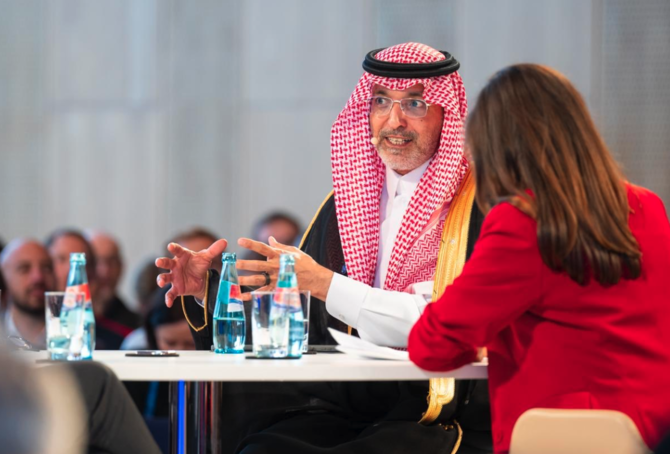RIYADH: Saudi Arabia is using its technological edge to not only meet domestic goals but support the interests of other nations, according to a top minister.
Speaking at a session during the 2024 Berlin Global Dialogue, Saudi Arabia’s Finance Minister Mohammed Al-Jadaan emphasized that long-term planning, stable policies, and strong public-private partnerships are crucial factors to ensure sustainable growth globally.
His comments on Saudi Arabia’s technological advancements align with the National Strategy for Data and Artificial Intelligence, which aims to establish the Kingdom as a global tech leader by 2030.
“We cannot have prosperity in the world without a very clear environment that supports innovation and technology and then sharing them, particularly with low-income nations and the emerging markets,” said Al-Jadaan.
He also underscored the need to invest in strengthening the multilateral trading system to mitigate economic risks, address challenges, and ensure equitable growth within societies.
Al-Jadaan called for continued engagement in forums like the Berlin Global Dialogue through multilateral institutions to discuss critical global issues.
In May, at the third meeting of G7 finance ministers and central bank governors under Italy’s presidency, Al-Jadaan stated that Saudi Arabia is on track to help propel sustainable development globally through its pivotal role in artificial intelligence.
A report by global consulting firm Strategy& Middle East in September echoed this sentiment, projecting that Saudi Arabia’s technology sector could see an increase in operating profit of SR15 billion ($4 billion) by 2028 through the adoption of generative AI.
During the Berlin event, Al-Jadaan met with government officials and major international investors to explore opportunities for cooperation and partnership with Saudi Arabia. He also discussed strengthening the Kingdom’s role in various international forums.
The Saudi minister also met with German Finance Minister Christian Lindner and discussed ways to enhance bilateral relationship between both nations.
The second edition of the Berlin Global Dialogue began in the German capital on Oct. 1 under the theme ‘Building Common Ground.’
The two-day event focused on how the international community can continue cooperating amid increased fragmentation, misinformation, and distrust.
This year, the German government launched the next phase of the Green Guarantee Group, designed to unlock private capital for green investments.
According to the Berlin Global Dialogue website, Green Guarantees are innovative but underutilized financial tools that promote environmentally sustainable projects by reducing risks for investors.




















